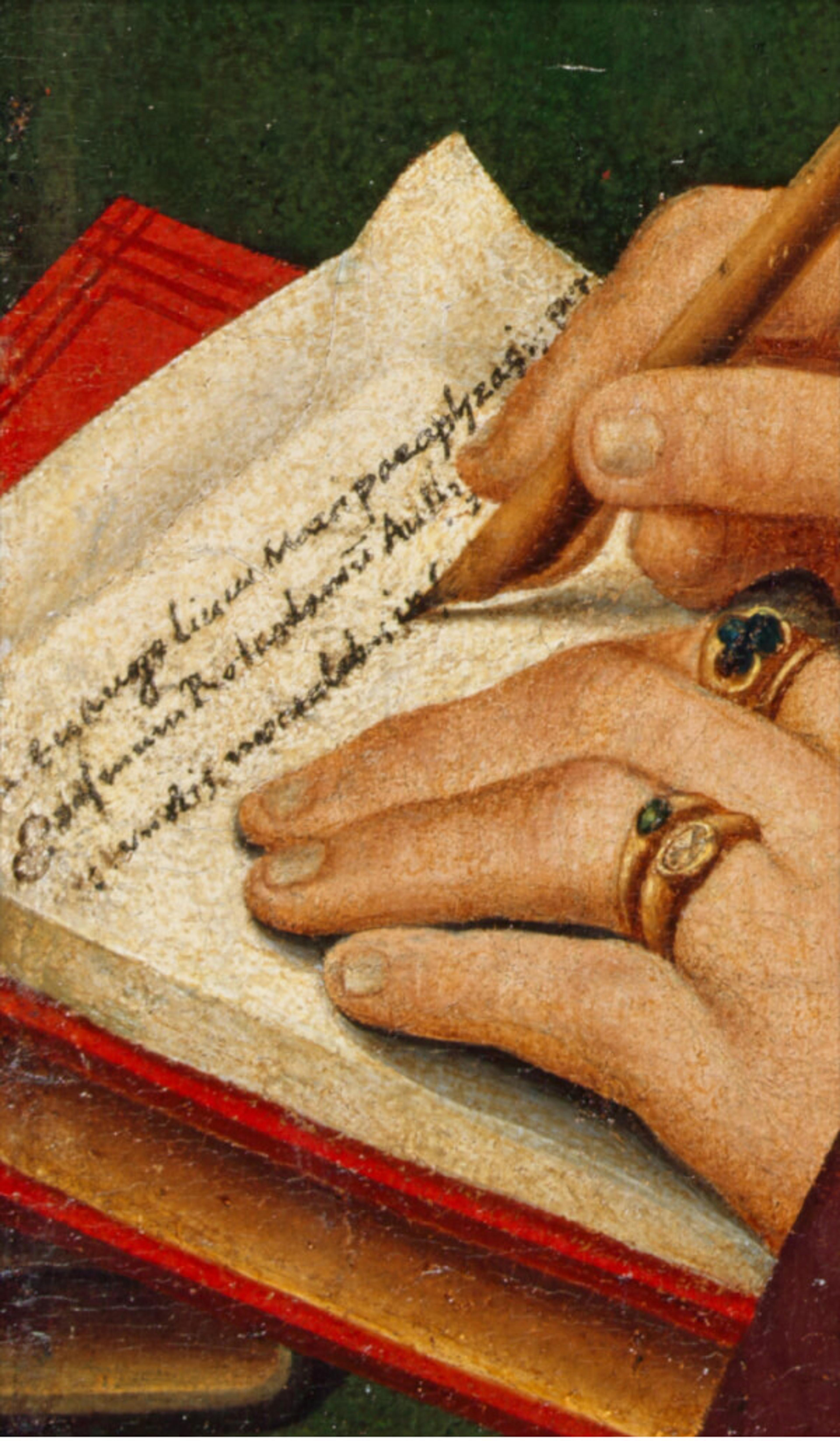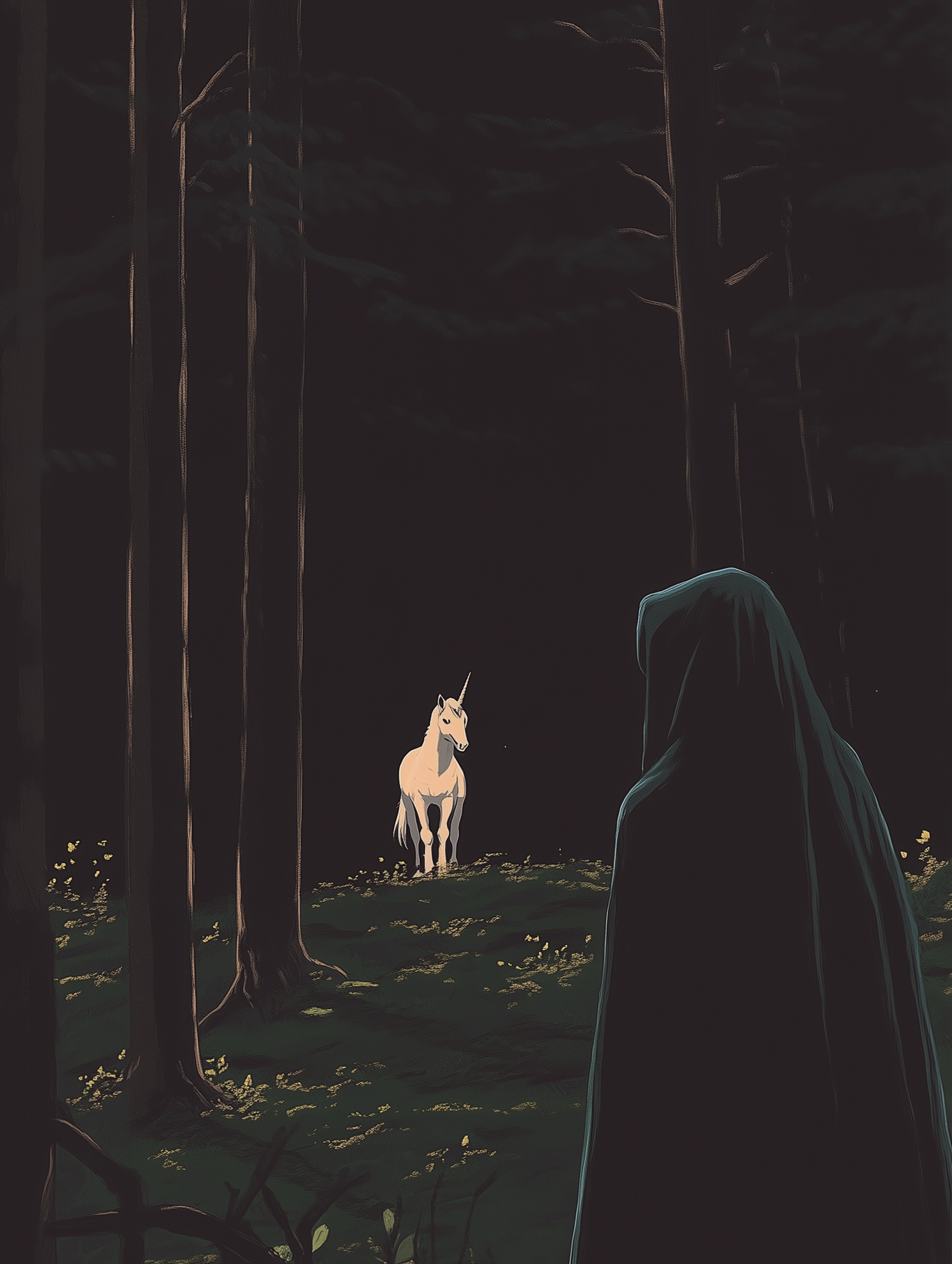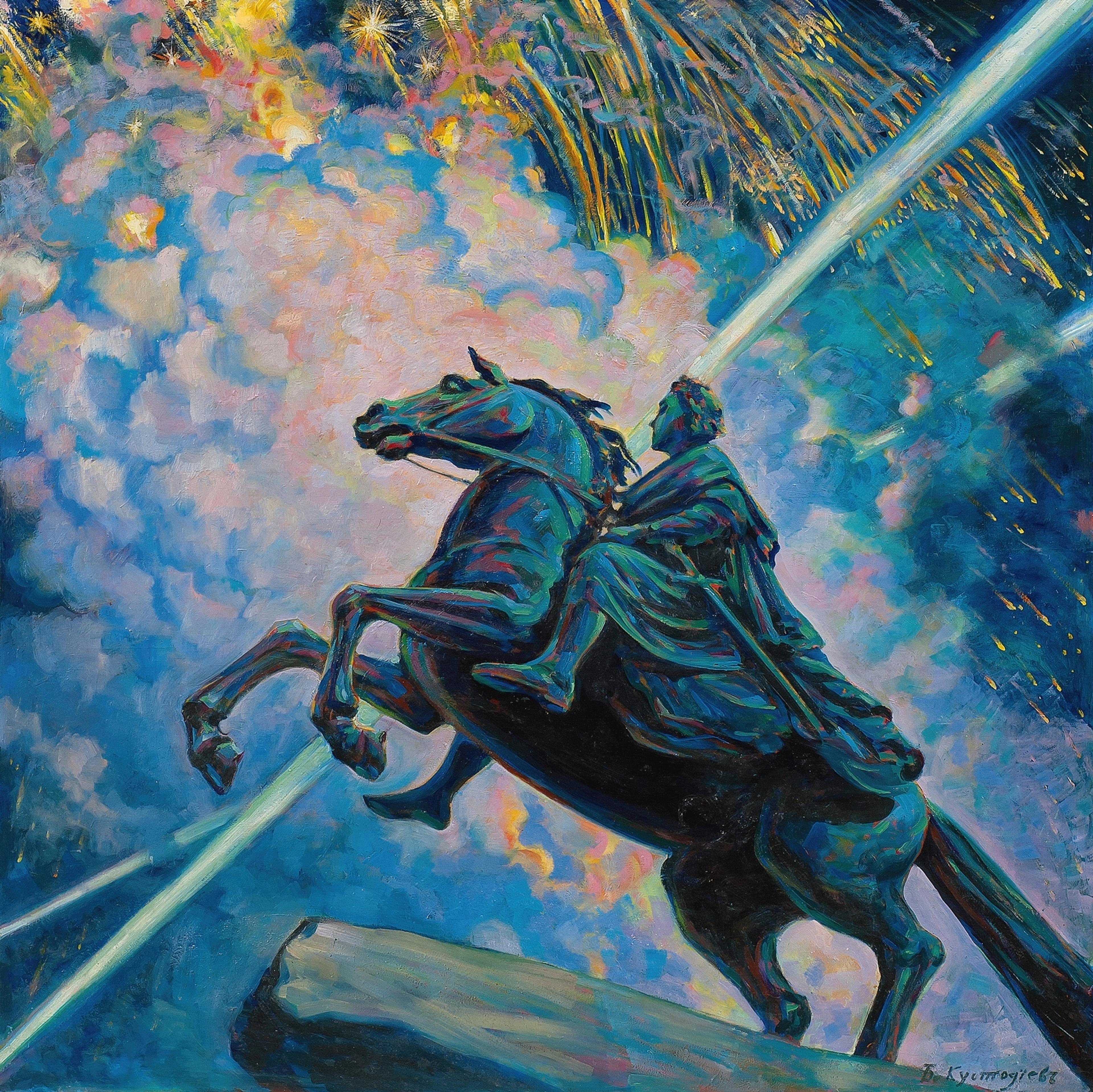HOW TO
StopTime
By
Nathan Baugh
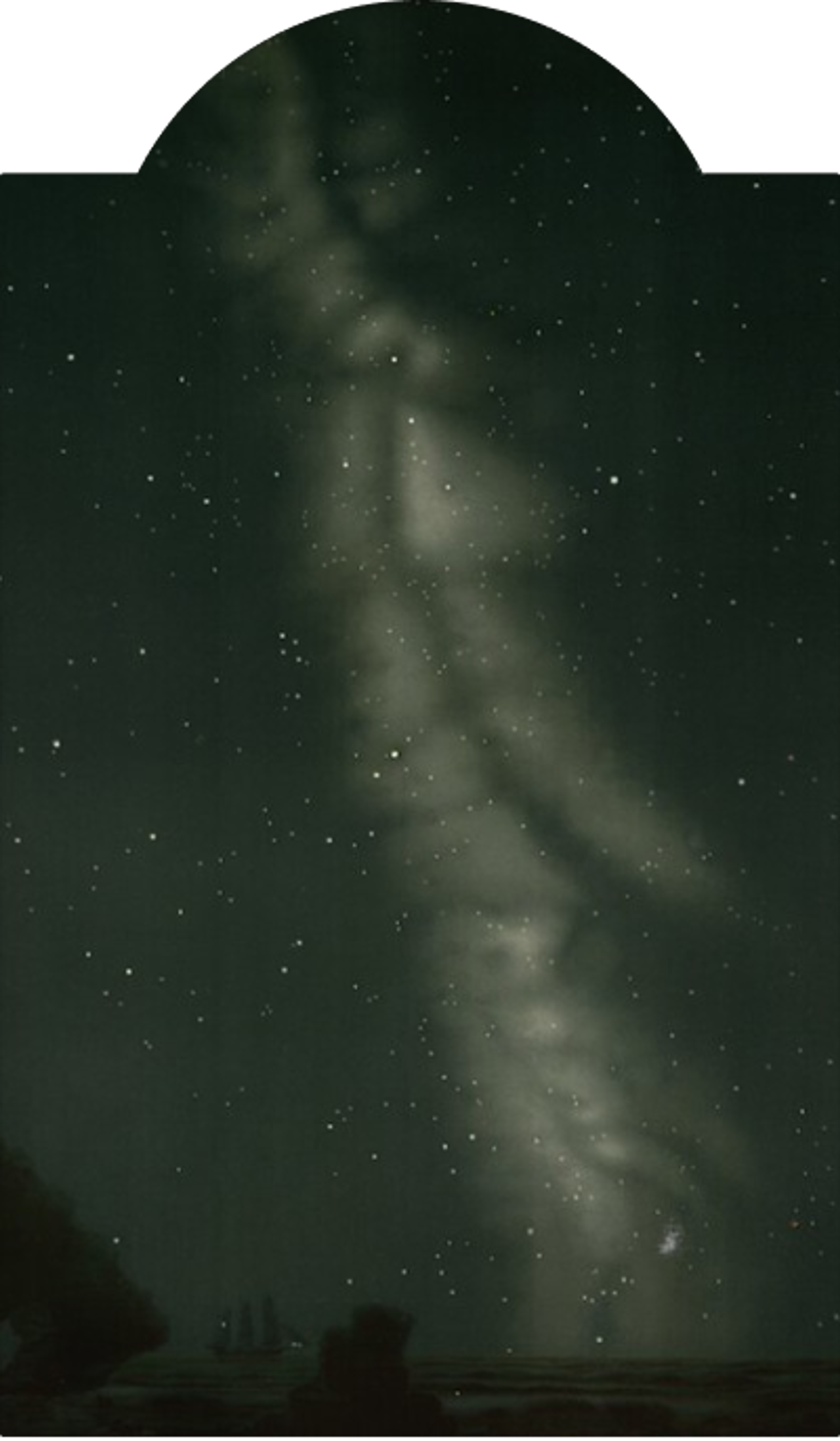
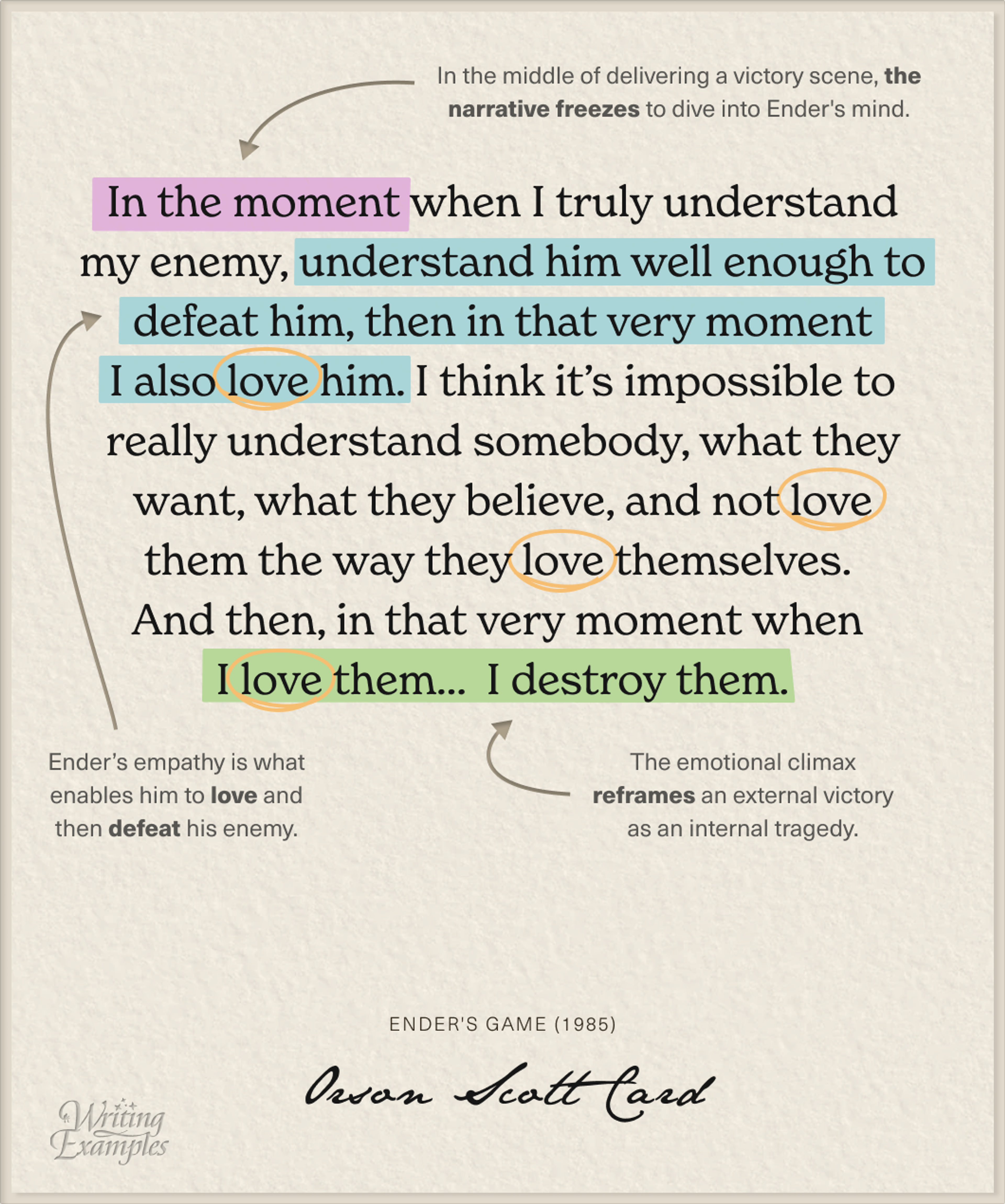
s writers, we have one crucial advantage over other communicators—the ability to “stop time” through interiority.
In this passage, Orson Scott Card approaches his story’s climax. The hero has overcome, the sworn enemy is about to be vanquished, the stage is set for triumph. But at the exact point when we expect a straightforward victory scene, Card freezes the external action and drops us into Ender’s mind.
Wait, what? Why pause when you have all the momentum?
Because Card wants us to know that the decisive blow for Ender isn’t only physical, it’s emotional and moral as well. That pause brings Ender’s empathy front and center. What it reveals counters what's happening in Ender’s physical reality. In fact, the empathy that makes Ender such a strong leader also becomes his Achilles’ heel.
That collision between what the plot demands (a fight) and what the character feels (love) is where the real emotional payoff lies. By “stopping time,” Card doesn’t just pause the action. He transforms what could have been a one-note scene into a deeply paradoxical experience. Ender isn’t simply winning a fight, he’s grappling with love and responsibility and understanding, and that clash makes his victory feel more like a tragedy.
Motivations are rarely simple—they’re often paradoxical. The action on the surface might scream “Victory!” while the mind underneath whispers, “What have I done?”
In your writing, watch for these moments of collision. They are gifts. They are your cue to freeze the external action and zoom into your character’s mind. Let the character question, dream, or tremble. That’s what turns a fight into a story.
Read More
Write like the Greats
New Writing Examples, right in your inbox.
“Beautiful, playful, and high-quality. Kudos.”
Clayton
from Missouri, USA

